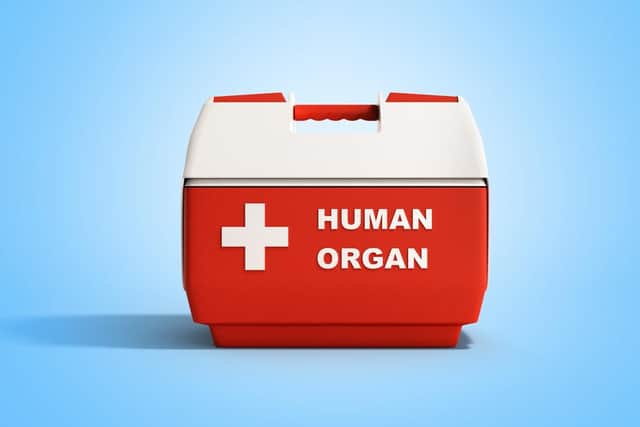When do organ donation laws in Scotland change? How NHS Scotland’s new opt out system will work - and what happens when you become a donor
The new system is based on “deemed authorisation”, and is also known as an “opt out” system.
Why is the organ donor law changing?
The Scottish Government hopes that the new rules will help increase the number of organ transplants performed in Scotland, saving as many people’s lives as possible.
Advertisement
Hide AdAdvertisement
Hide AdNHS Scotland said that only around 1 per cent of people in Scotland die in a way that makes them suitable organ donors, meaning every possible donation is crucial for those on waiting lists.
How will the new law work?
The opt out system means that if you have not opted out by the time you die, and your organs are suitable for transplantation, you could become a donor.
The rules will only apply to the donation of commonly-needed organs and tissues, like kidneys, hearts, lungs, livers and tendons.


Your family and friends will still be asked about your views on transplantation in the event of your death, so that your views are still honoured even if you did not opt out.
If you are supportive of organ donation, you can still choose to actively “opt in” too.
NHS Scotland said that doing so can often make it easier for your loved ones to know that your wishes are followed after your death.
When do organ donation laws in Scotland change?
From March 26, 2021, Scotland’s new opt out organ donation system will come into effect.
Until then, the current system, which requires people to declare whether they would like to be an organ donor by, for example, carrying an organ donor card in their wallet, will still apply.
Who does the new law affect?
Advertisement
Hide AdAdvertisement
Hide AdThe new law will apply to most adults who are resident in Scotland. It will not apply to children under the age of 16, adults who have diminished capacity to understand the new law, and adults who have lived in Scotland for less than a year before their death.
The law means that, if a person who is exempt from the new opt-out rules dies in such a way that their organs could still be donated, the decision over whether to go ahead with the procedure will lie with their closest relative.
What choices around organ donation do I have?
People in Scotland will have three options when it comes to organ donation.
Firstly, you can do nothing. If you do, it will be assumed that you agree to donate certain organs and tissue for transplantation after you die.
Doing nothing will also mean that it is assumed you agree to certain medical tests and procedures before your death as part of the donation process. NHS Scotland says specialist nurses will speak to your loved ones before these tests take place.
The second option open to Scots is to opt out of the NHS Organ Donor Register.
This means that none of your organs or tissues will be donated in the event of your death.
Thirdly, you can record your decision that you want to be a donor in the NHS Organ Donor Register.
Advertisement
Hide AdAdvertisement
Hide AdBy doing so you can also make it clear if you would only like certain organs or tissues to be donated.
How do I record my donation decision?
To record your decision on the NHS Organ Donor Register, click here.
If you would like to register your decision over the phone, call 0300 303 2094.
A message from the Editor:
Thank you for reading this article. We're more reliant on your support than ever as the shift in consumer habits brought about by coronavirus impacts our advertisers.
If you haven't already, please consider supporting our trusted, fact-checked journalism by taking out a digital subscription.
Comments
Want to join the conversation? Please or to comment on this article.